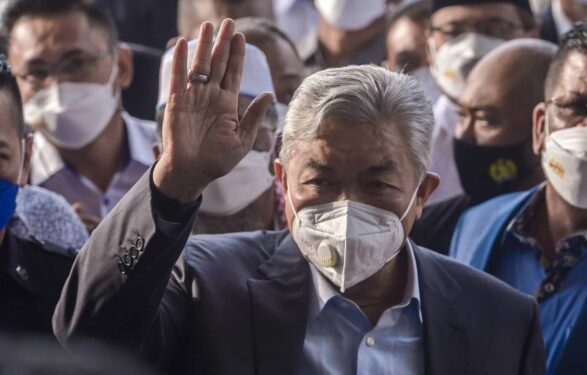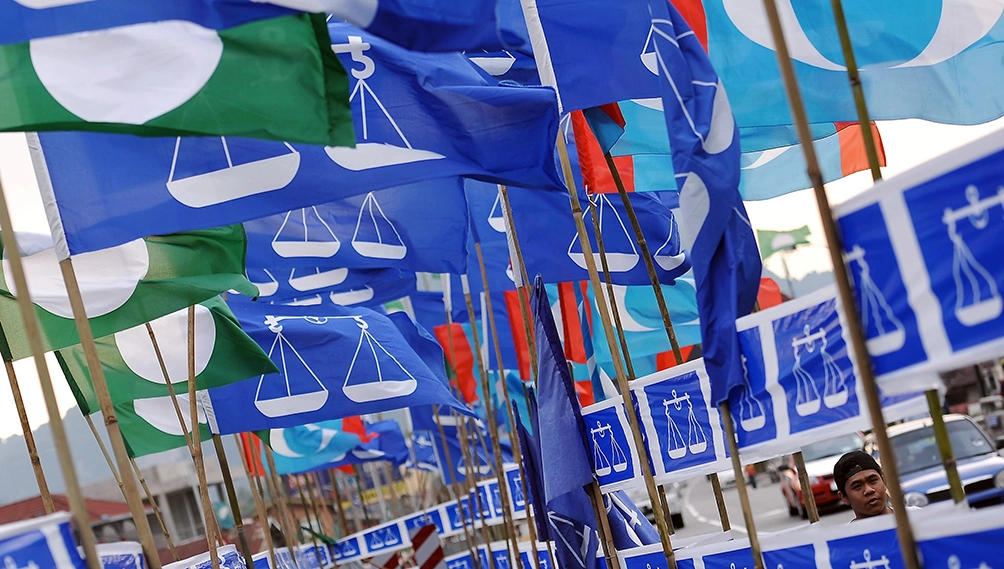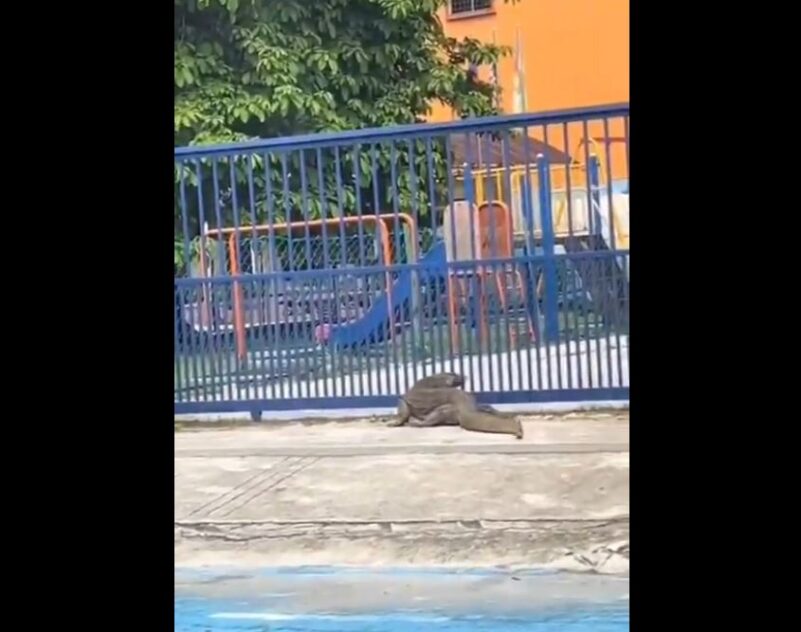AS the 15th General Election (GE15) looms near, there is a clear public demand for more accountability and clarity in how politicians finance their election campaigns and their political parties; what is legitimate political funding and what is not remains unclear.
The simple reason why we are in murky waters is because Malaysia does not have political financing legislation.
It is for this reason that there are a number of high-profile politicians currently on trial over the discovery of millions in their personal bank accounts.
The lack of specific laws to regulate the financing of political funds could make it difficult for the authorities to determine if such contributions are for the stated purposes or corrupt reasons.
Thankfully, the Government has pledged to table the Bill at the next Parliamentary sitting in October.
Regulations and transparency in political financing are high on the global anti-corruption agenda. For instance, Article 7.3 of the UN Convention Against Corruption (UNCAC) calls on countries to enhance “transparency in the funding of candidatures for elected public office and where applicable, the funding of political parties.”
While Malaysia does not have a Political Financing Act, the Elections Offences Act 1954 was enacted to provide the terms and matters relating to elections and prevent corrupt and illegal practices during elections.
However, the Elections Offences Act does not have the depth and breadth of a political financing law that would govern the regulations on sources of funding, caps on donations, obligations to disclose and declarations of the amount of funding and so on.
Malaysia can look to best practices from other countries as it forms its own guidelines for a Political Financing Bill.
Key components of regulations of political financing regulatory frameworks must include regulations of private funding and donations, provisions of public funding, regulations on spending, including its limits, and monitoring and oversight.
Private donations
Private funding in the form of donations, whether from local or foreign sources, constitutes a large part of party and campaign income in many countries.
Malaysia’s absence of clearly defined regulations on political funding has given rise to a situation where any politician or political party could receive contributions without limit and from sources that are not disclosed.
The danger of this lack of regulation and transparency is that the private contributions or donations could influence the politician to extend favourable treatment – for instance, the awarding of contracts or influencing of policy formulation in favour of private interests.
Political funds were brought up in the corruption trial of UMNO President Datuk Seri Dr Ahmad Zahid Hamidi, where witness Harry Lee Vui Khun, the former director of Ultra Kirana Sdn Bhd (UKSB), told the court on May 19 that the money given to the former deputy prime minister was not for corrupt purposes but political reasons.

In addition, the discovery of a ledger with a list of names of politicians who were allegedly recipients of political donations from UKSB, in addition to Zahid, has also raised eyebrows.
In another high-profile case, the defendant argued that the vast amount of money found in his bank account was a donation from Arab royalty.
Without a political financing law, the giving and receiving of political funding will continue and the parties involved would have no obligation nor interest to disclose or declare the source or the amount of the donation.
Currently, simply proving that a large amount of money is being given to a certain politician does not constitute an offence as there are no laws or regulations on what constitutes legitimate political financing and what is not.
To further the case, the prosecution has to prove beyond reasonable doubt that the receiver of the donations was in a position to reward or extend certain benefits for the donor so it would then constitute a bribe or that the money itself was ill-gotten gains (which would fall under the anti-money laundering law).
Corporate and private funding
According to research by the International Institute for Democracy and Electoral Assistance, globally, 46 countries ban corporate donations in order to limit the influence of funding from vested corporate interests.
Further, 88 countries prohibit politicians and political parties from receiving political donations from corporations with partial Government ownership or Government Linked Corporations (GLC). This is to avoid the uneven level playing field caused by ruling parties in the Government being able to access these funds.
While Malaysia has no laws that regulate how political parties fund their operations, Indonesia, the Philippines and Timor-Leste ban both foreign and anonymous donations.
Globally, 67.8% or 122 countries ban anonymous sources while 68.3% ban foreign sources. This is to ensure transparency of the source of funding as well as to prevent foreign influence from hijacking domestic interest.
In addition to donation bans, some other countries place a limit on the amount a donor can contribute to political parties or candidates in order to reduce the power of a few large donors gaining excessive influence in the politics and decision-making of a nation. Globally, 46.1% or 83 countries place donation limits on political parties.
Provision of public funding
Globally, nearly 70% or 126 countries provide some sort of direct public funding to candidates and political parties.
The terms and conditions attached to being given access to public funding can encourage political parties and candidates to comply with existing rules and regulations of political financing. For example, timely reporting, declaration of assets and accounts, abiding by the limits of spending and sources allowed to receive political funding.
Allocation of public funding based on the percentage of women or minorities in elected seats could also make way for more women and marginalised populations in politics.
In many countries, the allocation of public funding is in proportion to either the votes received or seats won by political parties.
In addition, public funding can be given indirectly in the form of access to media, tax relief, free or discounted premises for campaign meetings and subsidised postage costs.
Spending limits
In Malaysia, spending limits are applied only to candidates, not to political parties. According to the Elections Offences Act, state candidates can spend up to RM100,000 and Parliamentary candidates only up to RM200,000.
This threshold is considered too low by many politicians and research has indicated that candidates have underreported their spending during campaigns.
Globally, 49.2% of countries place a limit on the amount a candidate can spend while 35% of countries limit it to political parties.
The rationale behind putting a cap on political spending is to reduce the unfair advantages certain political parties or candidates with access to large amounts of money can spend and prevent a spending race between political parties which may breed corrupt practices in the process.
Finally, a Political Financing Act needs to have monitoring and strong oversight by independent bodies. The enforcement of political financing regulations has been the struggle and challenge of many countries which already have political financing laws.
Oversight bodies should cooperate closely with existing anti-corruption agencies that tackle other regulations relating to money laundering, public procurement and fraud, in order to regulate political financing matters in a holistic and comprehensive manner.
In addition, a critical media, educated electoral, rule of law and whistleblower protection are elements that would help monitor and ensure political parties and candidates abide by regulations. – Sept 17, 2022
Dr Kassim Nor Mohamed is the vice-chancellor of the Enforcement Leadership and Management University.
The views expressed are solely of the author and do not necessarily reflect those of Focus Malaysia.
Main photo credit: The Malaysian Reserve









